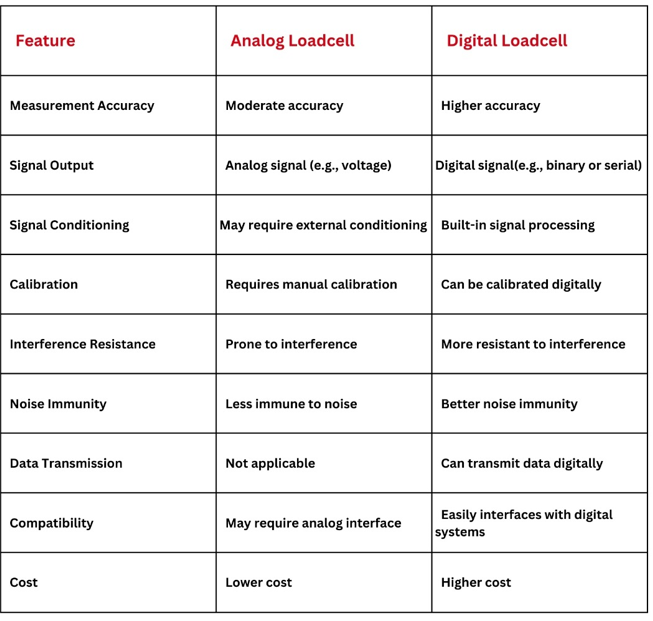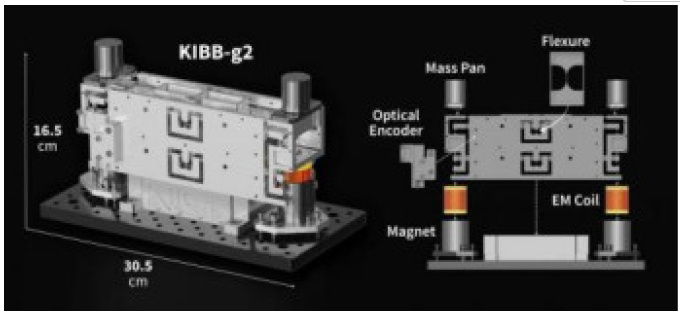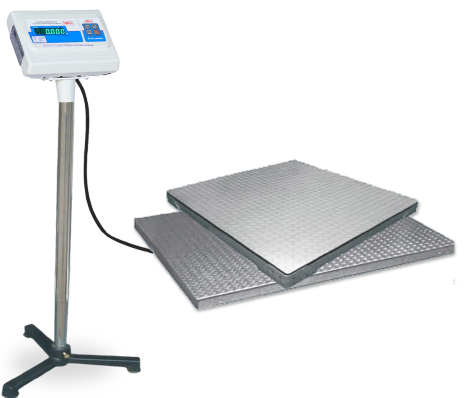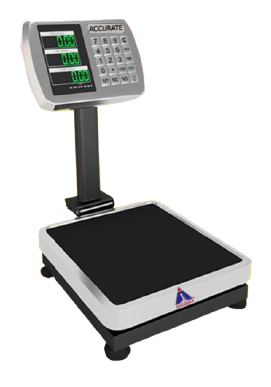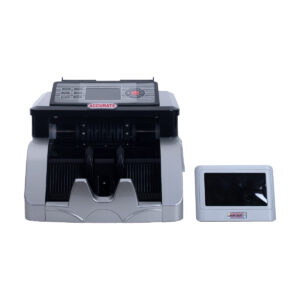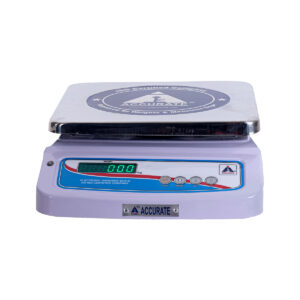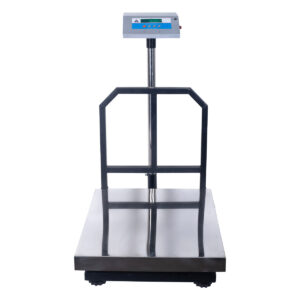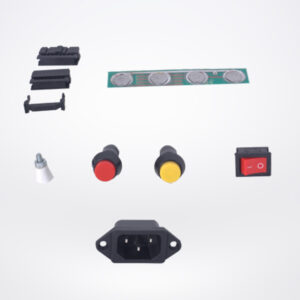Digital Weighing Scale
Benefits of Digital Weighing Scales:
Digital weighing scales are devices used to measure the weight or mass of an object. They are sometimes called electronic scales and are usually composed of an LCD screen, loadcell, controller and platform. You can use digital scales to measure the weight of people, animals or objects. Generally, the scales use grams and kilograms as units of measure, but some models with the latest technological innovation allow for conversion to pounds and other units.
HOW DO DIGITAL WEIGHING SCALES WORK? There are many different types of digital weighing scales, but in general, they all work in the same way. They use sensors to measure the weight of an object and the digital display shows the result. The sensors convert the applied force into a digital readout in mass units such as grams or kilograms. Digital scales are very accurate and can be used to measure even tiny objects. Such accuracy is typically at +/- 0.1% compared to their full-scale range. For this reason, various industries trust the reliability of these weighing scales. This includes scientific applications, manufacturing, food processing, shipping and logistics, construction, farming and facility management.
BENEFITS OF DIGITAL WEIGHING SCALES:
1. INCREASED ACCURACY:
Traditional analog weighing scales can be subject to a variety of errors, including inaccuracies caused by the user’s interpretation of the needle position or imperfections in the manufacturing process, not to mention the wear and tear of time attributed to its mechanical parts. Electronic weighing scales are typically more accurate than their analog counterparts because they employ digital technology to provide more precise measurements. Additionally, these scales often have built-in calibration features that help ensure accuracy and precision.
2. EASIER TO READ:
Digital scales are easier to read than analog scales since they use a display that provides readouts in numeric form. Generally, they have a backlit display, making them readable even in low-light conditions. Although most analog scales have larger displays, digital scales often have considerable display sizes with visible outputs that you can see even from a distance.
3. SLEEK AND COMPACT:
Digital weighing scales are becoming increasingly popular because they are sleek and compact. They do not need too much space, so you can place them almost anywhere in your home or office. All it needs is a levelled ground, table or space to ensure accuracy and reliability.
4. MORE ADVANCED FEATURES: Electronic scales offer advanced features that are not present in analog scales. For instance, the more advanced models can track your weight over time or set goals and track your progress. This information can be extremely helpful if you want to lose weight or maintain your current body mass. Some of these innovative scales also come with built-in timers, so you can be sure your food cooks perfectly. Additionally, you can connect them to your smartphone or other devices, so you can track your database and inventory over time.
HOW DO DIGITAL WEIGHING SCALES WORK? There are many different types of digital weighing scales, but in general, they all work in the same way. They use sensors to measure the weight of an object and the digital display shows the result. The sensors convert the applied force into a digital readout in mass units such as grams or kilograms. Digital scales are very accurate and can be used to measure even tiny objects. Such accuracy is typically at +/- 0.1% compared to their full-scale range. For this reason, various industries trust the reliability of these weighing scales. This includes scientific applications, manufacturing, food processing, shipping and logistics, construction, farming and facility management.
BENEFITS OF DIGITAL WEIGHING SCALES:
1. INCREASED ACCURACY:
Traditional analog weighing scales can be subject to a variety of errors, including inaccuracies caused by the user’s interpretation of the needle position or imperfections in the manufacturing process, not to mention the wear and tear of time attributed to its mechanical parts. Electronic weighing scales are typically more accurate than their analog counterparts because they employ digital technology to provide more precise measurements. Additionally, these scales often have built-in calibration features that help ensure accuracy and precision.
2. EASIER TO READ:
Digital scales are easier to read than analog scales since they use a display that provides readouts in numeric form. Generally, they have a backlit display, making them readable even in low-light conditions. Although most analog scales have larger displays, digital scales often have considerable display sizes with visible outputs that you can see even from a distance.
3. SLEEK AND COMPACT:
Digital weighing scales are becoming increasingly popular because they are sleek and compact. They do not need too much space, so you can place them almost anywhere in your home or office. All it needs is a levelled ground, table or space to ensure accuracy and reliability.
4. MORE ADVANCED FEATURES: Electronic scales offer advanced features that are not present in analog scales. For instance, the more advanced models can track your weight over time or set goals and track your progress. This information can be extremely helpful if you want to lose weight or maintain your current body mass. Some of these innovative scales also come with built-in timers, so you can be sure your food cooks perfectly. Additionally, you can connect them to your smartphone or other devices, so you can track your database and inventory over time.





